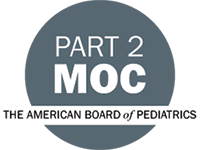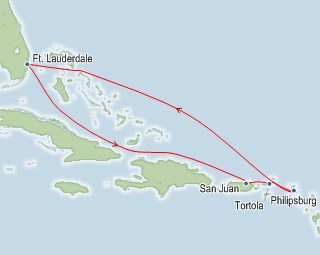
COURSE CREDITS & HOURS
AMA PRA Category 1 Credits™14 ACPE Credits
14.0 MOC (Part II) points in the American Board of Pediatrics' (ABP) Maintenance of Certification (MOC) program
3½ Hours of Pharmacology for NPs
COURSE FEES
TARGET AUDIENCE
PROGRAM PURPOSE
- ADHD Update: Identification and Diagnosis
- Use behavioral screening tools to identify children with behavior and emotional problems
- Apply evidence-based strategies to diagnose children with ADHD
- ADHD Update: Treatment
- Demonstrate increased comfort prescribing medication for children with ADHD
- Describe evidence-based behavioral strategies for children with ADHD
- Evidence Based Positive Parenting: Part 1
- Apply evidence-based positive parenting strategies as a part of routine well-child care
- Identify specific places during the well-child visit to include discussion of evidence-based positive parenting strategies.
- Evidence Based Positive Parenting: Part 2
- Apply evidence-based positive parenting strategies as a part of routine well-child care
- Identify specific places during the well-child visit to include discussion of evidence-based positive parenting strategies.
- Childhood Adversity: Can We Make a Difference?
- Describe the threats to early childhood development and the impact of these threats
- Identify interventions to support children and family's facing adversity
- Fetal Alcohol Spectrum Disorders: More common than you think.
- State the diagnostic criteria for the FASDs.
- Have more comfort in screening mothers for prenatal alcohol use
- Consider FASDs in children with complex neurodevleopmental disorders
- Office Based Strategies to Help Anxious Children
- Increase techniques that can be used in the office to work with parents of anxious children
- Identify office-based strategies to help children cope with anxiety
- An update on therapies for the management of metastatic castrate resistant prostate cancer
- As a result of this activity, participants should be aware of the various treatment options for metastatic castrate resistant prostate cancer (mCRPC).
- Biomarkers in Prostate Cancer
- As a result of this activity, participants should be aware of the evolving role of biomarkers in the evaluation , treatment decision-making and follow-up of patients with prostate cancer.
- Urolithiasis: Evaluation and Management in Adults and Children
- Upon completion of this activity, participants should be aware of the signs/symptoms of urolithiasis, the recommended radiologic evaluation, medical therapy and metabolic workup of individuals with urolithiasis.
- Current guidelines for the evaluation and management of overactive bladder
- Upon completion of this activitiy, participants should be identify the symptoms of OAB, perform a simplified evaluation and manage OAB patients with first and second line therapies.
- Evaluation and Management of voiding dysfunction in children
- As a result of this activity, participants will be able to cite the signs/symptoms of pediatric voiding dysfunction in children.
- Adolescent varicocele: Who to treat? Who to follow?
- As a result of this activity, participants will be able to describe current controversies in adolescent varicocele.
- Common pediatric urologic problems: What is normal? When to Worry?
- As a result of this activity, participants should be able to describe several common pediatric urologic problems and which problems require urgent evaluation and which are self- limiting.
- As a result of this activity participants will understand the potential etiologies of nocturnal enuresis and the rational for the different treatment strategies.
- Neonatal circumcision: the role of primary care and advanced practice providers
- As a result of this activity participants will be able to perform a careful genital examination, understand genital anomalies which preclude neonatal circumcision and be familiar with the more commonly encountered circumcision complications.






























